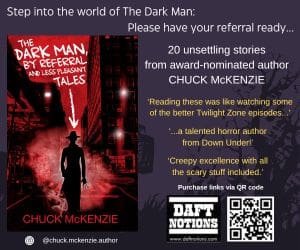
Definition of guideline
: a line by which one is guided: such as
a: a cord or rope to aid a passer over a difficult point or to permit retracing a course
b: an indication or outline of policy or conduct
This is from Webster’s. A line by which one is guided. Think about that for a minute. When you follow a publisher’s guidelines, you are traversing the course they set out for you. This is good, because editors want to focus on the story; they don’t want to be distracted by outside factors. If you don’t follow the guidelines, it’s distracting. Also, it’s far more likely to get your work rejected. No editor wants to work with someone who can’t be bothered to follow the rules. I know this is true, because I’m also an editor.
Aside from publishers’ guidelines, we have our own, don’t we? We have a method by which we write. Sometimes, this means always being in the same place: your desk, a café (during non-pandemic times anyway), park bench, comfy chair in the living room (me), etc. Sometimes, it means following certain rituals: background music, coffee, alcohol, bag of Cheetos, etc. Sometimes, it means removing distractions. Sometimes, it means welcoming them. We all have different things that work for us. Different lines that guide us. That’s what this post is about.
I’ve read a shitload of books and essays about writing. I’m always interested in bettering myself. I want to be at the top of my game. I want each story to be better than the last. I’m not saying you have to be this way. It’s just how I roll. Now, a lot of what I read says pretty much the same thing, with subtle variations. Some of it resonates with me. Some, not so much. Most things about writing, especially when written by the pros, also says to take it all with a grain of salt. Nothing is gospel. Your mileage may vary.
This is really, really important.
You’re almost certainly going to struggle sometimes. We all do. Beginning writers feel like they’ll never be as good as their heroes. Midlist writers (like me) constantly wonder if what they’re doing is really worth taking money for (I just made that shit up! You’re paying me? Okay…sucker.) or if they’ll ever move up in the ranks of Real Authors. Will you become a household name? Will they make movies from your work? Will you be immortalized in print? Will you fade into obscurity, penniless and bitter, toothless and filthy, raging at the fools who don’t recognize your genius, only to be posthumously canonized and taught to college kids in a hundred years. I may have dwelt on this some. I know for a fact that even wildly successful writers suffer from imposter syndrome. I’ve heard this from their own lips. Neil Gaiman, one of my favorite, and unquestionably successful, writers admitted to feeling like he was getting away with something.
The thing is, folks, all of it is outside of your control. We all know that whether our stuff gets accepted, or rejected, or even read past the first line, is a crapshoot. There are ways to nudge your work in that direction, of course. You put in the time to learn your craft. You study good writers, you read books on how to write better. You research your material so it rings true. You find your voice (don’t ask me how; nobody knows). You get to know other writers who’ve been at this for a while and ask them for advice. And, because most of us are decent people, you get answers. You pay attention to feedback in your rejections. You learn from mistakes. You build relationships.
Important side-note regarding that last thing: do not attempt to get to know successful writers simply to further your own career. Do not use people as rungs on a ladder. This is painfully obvious when it’s happening, and nobody likes it. This will have the opposite of the desired effect. People won’t want to be around you. I’ve said it countless times, and I’m sure I’ll say it countless more: don’t be a dick. Cultivating relationships is just that: relationships. Getting to know people because you are interested in them as people. Because they are bright, witty, charming, quirky, funny, warm, genuine folks. Writers are some of the most fun people I know. Famous and otherwise, they are almost universally cool. And, most of them want to help new writers feel comfortable. They want you to do well. Really.
So, back to guidelines for a moment: a cord or rope to aid a passer over a difficult point. This, too, applies to writing. I can’t tell you how many times writing has saved my ass. I’ve had some bad knocks, as some of you know. Some staggering challenges have smashed into my life, and very nearly ended me. A lot of things helped get me through it: therapy, family, close friends, love, alcohol (though I’m done with that one), my kids. Writing helped a lot. A ton. I could articulate my pain in a way few people can. I had this outlet, this machine for catharsis, at my beck and call. And, I’ll be honest, I wrote a lot of really awful fiction during this time (even subbed some of it, to my embarrassment). I also wrote some of the best stories of my life. But, the point is, writing was my guideline; it got me past a difficult point.
So, yeah, when you’re submitting work to a publisher, you should absolutely follow their guidelines, and to the letter, no matter how asinine or ludicrous they may seem. They’re in there for a reason, even if that reason is to see if you’re paying attention.
But, also, follow your own guidelines. Be yourself. Revel in that. No one is you. Once you find your voice, no one writes like you. Own that. Have fun with it. If you feel lost or overwhelmed, along the way, reach out, and grab the cord of your drive to write. Seize the rope of your passion. Get past the difficult point and rock on.
We’re all in this together. I’ve got your back.
Thanks for listening.










